 3 citations,
January 2010 in “Actas Dermo-Sifiliográficas”
3 citations,
January 2010 in “Actas Dermo-Sifiliográficas” Immunization and throat bacteria may increase the risk of a hair loss condition called alopecia areata.
 3 citations,
July 2004 in “SKINmed/Skinmed”
3 citations,
July 2004 in “SKINmed/Skinmed” A 4-year-old girl was diagnosed with erythrokeratodermia variabilis after other treatments failed.
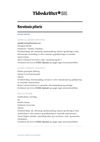 1 citations,
March 2023 in “Tidsskrift for Den norske lægeforening”
1 citations,
March 2023 in “Tidsskrift for Den norske lægeforening” Keratosis pilaris is a common skin condition causing a bumpy texture, sometimes linked to other diseases, with various treatments available.
 October 2024 in “Media Farmasi”
October 2024 in “Media Farmasi” Combining soursop leaf extract with doxorubicin may improve breast cancer treatment and reduce side effects.
 May 2024 in “Portuguese journal of dermatology and venereology”
May 2024 in “Portuguese journal of dermatology and venereology” Reassurance and counseling are key in managing acute telogen effluvium, with supplements possibly offering a placebo effect.
 June 2023 in “Revista médica hondureña”
June 2023 in “Revista médica hondureña” Most pediatric cancer patients in the study developed skin problems, often due to their cancer treatment.

Lower LDL-c levels predict higher COVID-19 mortality.

COVID-19 may be linked to hair loss called Telogen Effluvium, affecting quality of life and self-esteem.
 March 2022 in “Brazilian Journal of Health Review”
March 2022 in “Brazilian Journal of Health Review” COVID-19 can cause a type of hair loss that usually starts 3-6 months after the illness, and treatment includes stress reduction and hair care products like Minoxidil.

A spayed dog with vaginal bone structures causing infection was successfully treated by removing the bones and administering medication.

Topical Minoxidil is effective for hair loss after COVID-19.
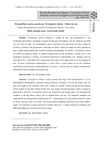 January 2021 in “Revista brasileira de higiene e sanidade animal”
January 2021 in “Revista brasileira de higiene e sanidade animal” A dog with skin lesions was successfully treated for a human-type fungal infection.
 January 2020 in “Revista da Sociedade Portuguesa de Dermatologia e Venereologia”
January 2020 in “Revista da Sociedade Portuguesa de Dermatologia e Venereologia” Frontal fibrosing alopecia in Brazil mostly affects postmenopausal women, often linked with hypothyroidism and eyebrow hair loss.
 December 2019 in “Medicina estética/Medicina estética”
December 2019 in “Medicina estética/Medicina estética” PRP may help improve hair transplant results.
 December 2019 in “Medicina estética/Medicina estética”
December 2019 in “Medicina estética/Medicina estética” PRP may help improve hair transplant results.
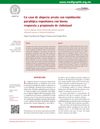 February 2017 in “Medicina cutánea ibero-latino-americana”
February 2017 in “Medicina cutánea ibero-latino-americana” An 8-year-old boy with hair loss had hair regrowth and responded well to clobetasol propionate treatment.

Two nutritional supplements improved hair growth and reduced hair loss in women with hair loss conditions.
 March 2013 in “Revista Brasileira de Cirurgia Plástica”
March 2013 in “Revista Brasileira de Cirurgia Plástica” Using platelet growth factors can improve hair density in transplants, especially for those with fine hair.
 January 2013 in “Revista Clínica Española”
January 2013 in “Revista Clínica Española” A postmenopausal woman's increased male hormone levels were successfully treated with surgery.
 May 2011 in “Dermatología argentina”
May 2011 in “Dermatología argentina” A 62-year-old woman with hair loss and skin condition had successful hair transplant surgery lasting 6 years, and medications helped reduce hair fall and promote growth.
 August 2010 in “Journal of The American Academy of Dermatology”
August 2010 in “Journal of The American Academy of Dermatology” The document explains the diagnosis and characteristics of woolly hair nevus and alopecia neoplastica.
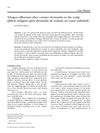
A patient experienced intense hair loss due to telogen effluvium after scalp contact dermatitis, but hair regrew completely within two months without further treatment.

Topical corticosteroid treatment showed no significant difference from placebo in treating alopecia areata in children.
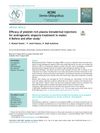 August 2020 in “Actas Dermo-Sifiliográficas”
August 2020 in “Actas Dermo-Sifiliográficas” PRP injections improve hair density in men with hair loss, with few short-term side effects.
 July 2019 in “Dermatología Cosmética, Médica y Quirúrgica”
July 2019 in “Dermatología Cosmética, Médica y Quirúrgica” Small injections of dutasteride improved hair thickness in men with hair loss without major side effects.
 January 2007 in “Revista del Centro Dermatológico Pascua”
January 2007 in “Revista del Centro Dermatológico Pascua” Hair loss in women, often not related to male hormones, increases with age and can cause significant emotional distress.
 773 citations,
August 2017 in “International Journal of Molecular Sciences”
773 citations,
August 2017 in “International Journal of Molecular Sciences” The secretions of mesenchymal stem cells could be used for healing without using the cells themselves.
 506 citations,
January 2012 in “Molecular and Cellular Endocrinology”
506 citations,
January 2012 in “Molecular and Cellular Endocrinology” Melatonin affects many body functions beyond sleep by interacting with specific receptors in various tissues.
 421 citations,
April 2012 in “The New England Journal of Medicine”
421 citations,
April 2012 in “The New England Journal of Medicine” Alopecia Areata is an autoimmune condition causing hair loss with no cure and treatments that often don't work well.
 408 citations,
January 2017 in “Science”
408 citations,
January 2017 in “Science” Some wound-healing cells can turn into fat cells around new hair growth in mice.






























